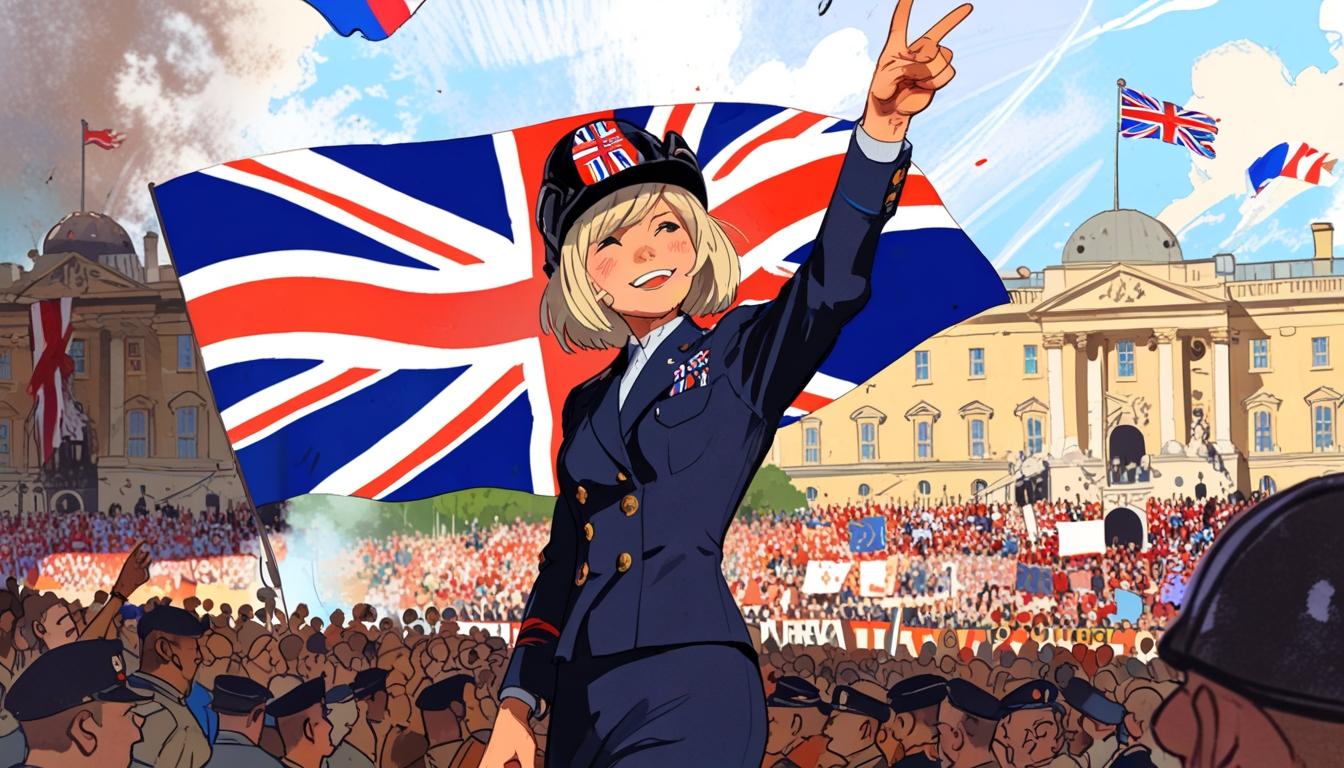A Celebration of Unity: BBC's VE Day Concert Proves Divisive Yet Memorable
The BBC's recent concert to honour the 80th anniversary of Victory in Europe Day ignited a spirited response from audiences, reflecting a mixture of nostalgia and contemporary flair. Hosted by Zoe Ball, the event, titled VE Day 80: A Celebration to Remember, took place in the historic setting of Horse Guards Parade, merging performances from popular artists with poignant tributes to veterans. While the concert was designed to evoke a sense of unity and remembrance, some performances sparked debate among viewers, showcasing the eclectic tastes of modern audiences.
Zoe Ball's enthusiastic introduction was a captivating opening to the event. With a Union Jack helmet and words of encouragement, she aimed to bring the vibrant atmosphere of celebration to the small screen. "The atmosphere has been so joyous," she remarked, expressing her excitement for sharing this recognition of historical significance with viewers at home. The host's emotional tie to the occasion was palpable, particularly as veterans shared their stories, connecting personal narratives to the fabric of wartime history.
The concert featured an impressive line-up, including performances by Samantha Barks, John Newman, and classical artist Sheku Kanneh-Mason. However, amid these heartfelt tributes, the appearance of the rock band The Darkness created some controversy. While their rousing performance of "I Believe In A Thing Called Love" brought energy to the evening, reactions online ranged from support to confusion, with one viewer calling it "a bit random." This polarising reception reflects broader cultural conversations about the appropriateness of musical choices during events steeped in historical significance.
Interestingly, discussions about the suitable tone for commemorative concerts are not new. A review of the D-Day 80 - Remembering the Normandy Landings concert at the Royal Albert Hall had also raised concerns, criticising the selection of artists and songs as lacking in gravitas. Opposed to this viewpoint, a contrasting concert—The Eyes of the World: From D-Day to VE Day—was praised for blending various art forms to create a deeply moving tribute, showcasing the potential for emotional resonance through thoughtful programming.
In this light, the VE Day concert's ambition to blend entertainment with memorialisation is noteworthy. The presence of high-profile figures such as the Prince and Princess of Wales, who mingled with the veterans, added a royal touch to the reverence of the occasion. Furthermore, special messages delivered by iconic personalities like Dame Joan Collins and Brian Cox's powerful rendition of Winston Churchill's wartime speech offered touching reminders of the past that continue to resonate today.
Audience reactions during the concert were demonstrably emotional, with many expressing appreciation for the patriotic dress code and the overall energy of the event. Online comments highlighted the spirit of unity, with attendees waving flags and singing along, generating a sense of collective memory that transcended generations.
While some participants in the concert might have caused raised eyebrows, the event overall appears to have succeeded in its goal to remember and celebrate a pivotal moment in history, balancing modern entertainment with respectful homage. As the landscape of commemorative events evolves, the discussions that arise from such unique performances only serve to enrich our understanding of how we honour the past while entertaining the present.
Reference Map:
- Paragraph 1 – [1], [2]
- Paragraph 2 – [1], [3]
- Paragraph 3 – [1], [2]
- Paragraph 4 – [1], [4]
- Paragraph 5 – [1], [5]
Source: Noah Wire Services
